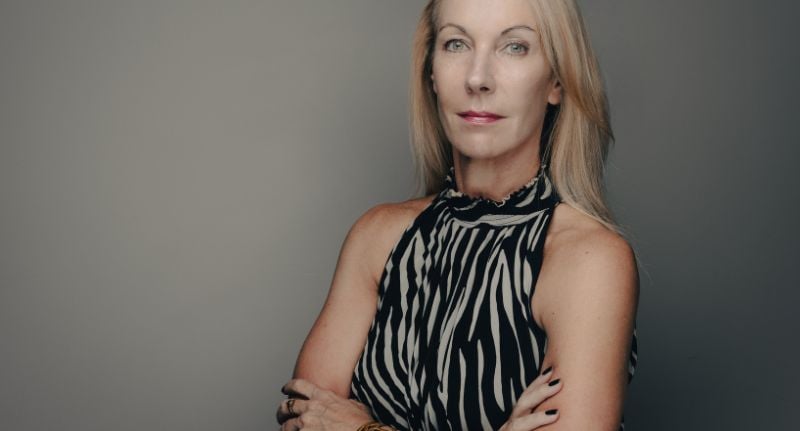Helen Graney, CEO, Weber Shandwick and Jack Morton Australia
In the last two years, I have been part of an incredible group of women who, in their “spare” time, have breathed life into Global Women in PR (GWPR) Australia.
With the support of Communication and Public Relations Australia (CPRA), we’ve connected more than 2,000 PR and communication professionals across the country through events, webinars, networking and mentoring.
Our purpose is simple – to help more women progress on the path to leadership by openly addressing the systemic barriers we face and finding ways to navigate or dismantle them together.
Over the years, we’ve spent a lot of time considering how best to address these challenges, but what stands out time and again is that the most powerful moments happen when women simply share their stories openly, honestly, and with vulnerability.
There’s nothing more inspiring or reassuring than realising you’re not alone in your self-doubt or uncertainty and knowing that you can, and will, move through it.
So when Pip Arthur, CMO of Microsoft Asia, and Jo Robinson, CMO of THE ICONIC, joined Simone Gupta, Co-founder of Supermassive, for a GWPR event at SXSW this year, we once again saw the power of women sharing their lived experiences, and it was wonderful.
At GWPR, our conversations often return to a familiar truth: many women can be hesitant to back themselves. Jo spoke openly about how taking a risk and moving to the Middle East with Unilever became a defining moment in both her personal and professional life. For her, the turning point came from leaning into opportunity and saying yes to the scary stuff, because that’s where the real learning happens.
Pip shared her own leap of moving from a long career in communications and marketing into leading a business group, and later stepping up as COO of Microsoft ANZ, suddenly responsible for a multi-billion business. She spoke about the experience with refreshing honesty, describing it as “terrifying,” yet one that pushed her to do things she “never dreamed were possible.”
For Pip, the shift marked a move from being reliant on being a master of a discipline to mastery of leadership. It was uncomfortable at first, but ultimately transformative, as the role became less about the communications craft and more about setting direction, aligning people around shared goals, galvanising teams to deliver, and driving accountability at every level.
Another powerful theme Pip and Jo explored was the role of mentors and sponsors, understanding the difference between them and how each can shape a career.
Mentors come and go throughout your journey, offering guidance, perspective, and support on specific focus areas. They’re the people you often seek out when you want to grow or tackle something new.
Sponsorship, however, is different. It happens when someone who knows your work, understands your ambition, and has seen you in action, actively advocates for you when you’re not in the room. Pip credited her sponsors for pushing her towards opportunities she might otherwise have declined, saying, “When you’re saying ‘hell no,’ your sponsor is saying ‘hell yes…and we will.’”
The conversation inevitably turned to balance. I’ve yet to meet a woman who doesn’t wrestle with it, in some form, at some stage of her career.
Both Jo and Pip acknowledged that there’s no silver bullet – no single formula for getting it right, just constantly evolving boundaries. The key, they agreed, is knowing what you need and giving yourself permission to honour it.
As Jo put it, “cut yourself some slack,” while Pip added the importance of “having real boundaries around family and taking the time to fuel your curiosity to be the best leader you can be.”
Throughout my own career, I’ve had the privilege of being in the room with many remarkable women. Each has shaped, influenced, and supported me in some way.
The common thread I’ve noticed among the most successful of them is humility, a groundedness that comes with knowing their worth without needing to prove it, and a wonderful ability not to take themselves too seriously.
Jo’s willingness to share the story of when she moved to Sydney from Perth and had no idea how to get home without driving first across the Harbour Bridge is a perfect example.
For the women like me sitting in the audience, listening to Jo it would have been easy to be intimidated by her success. But the visual of Jo, for months on end, driving over the Bridge, doing a U-turn and driving straight back to the bewilderment of the toll collector, made the whole room smile and connect with her even more.
The session offered countless lessons on navigating the many challenges that come with leadership. At GWPR, we know that conversations like this, with women like Jo and Pip, remind us that the biggest obstacle we’ll ever have to overcome shouldn’t be ourselves.
To join the Global Women in PR Australia community and get involved in the conversation.
Check out www.cpra.org.au for more information.

